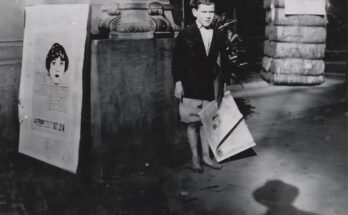On 26 May 1939, a Dutch Jewish boy named Carel Gans was born in Amsterdam. His birth came during a period of growing uncertainty in Europe, just a few months before the outbreak of World War II. In the early days of his life, Carel’s family may have still hoped for peace, unaware that in just a few years, the Nazi regime would reach across borders and threaten the lives of every Jewish person in the Netherlands—including their newborn son.
Carel spent his early childhood in Amsterdam, a city known for its vibrant Jewish community. Prior to the war, the Netherlands was seen as a relatively safe and tolerant country, and many Jews had long called it home. But when Germany invaded the Netherlands in May 1940, the atmosphere changed rapidly. Anti-Jewish laws were introduced, Jewish businesses were targeted, and eventually, the systematic deportation of Jews began.
As a young child, Carel would have grown up surrounded by fear and uncertainty. His parents likely tried to protect him from the harsh realities of the occupation, but the reach of the Nazi regime left few places untouched. In July 1942, mass deportations from the Netherlands to extermination camps in the East began, with Jews first being sent to Westerbork transit camp. Westerbork was a grim way station where families waited in anguish, not knowing where they were headed or what would come next.
In February 1944, when Carel was just four years old, he and his family were deported from Westerbork to Auschwitz, the largest and most notorious of the Nazi death camps. The journey would have been harrowing—days spent in overcrowded cattle cars, without food, water, or sanitation, as hundreds of families were packed together on their way to death or forced labor.
Upon arrival at Auschwitz, a cruel process known as “selection” took place. Nazi doctors and officers determined who would be sent to forced labor and who would be murdered immediately. Small children like Carel, along with their mothers and the elderly, were almost always sent directly to the gas chambers, as they were considered “unfit for work.” Carel Gans was one of them.
Carel was murdered shortly after arriving at Auschwitz, in a gas chamber, along with thousands of other innocent victims. He was not even five years old. He had barely begun to live when his life was taken away by a system built on hatred and destruction. Like so many children of the Holocaust, he had no chance to grow, to learn, to dream, or to live freely.
Though he was only a little boy, Carel Gans is remembered today as one of the 1.5 million children murdered during the Holocaust. His name is preserved in historical records so that we never forget the individual lives behind the staggering numbers. Every child like Carel was a world lost—a future erased.
His story is a heartbreaking reminder of what happens when hatred is left unchecked and human life is devalued. Remembering Carel is not just a tribute to his memory, but a commitment to protect the dignity of every child, everywhere, in all times. Through remembrance, we ensure that such a tragedy will never be repeated.


